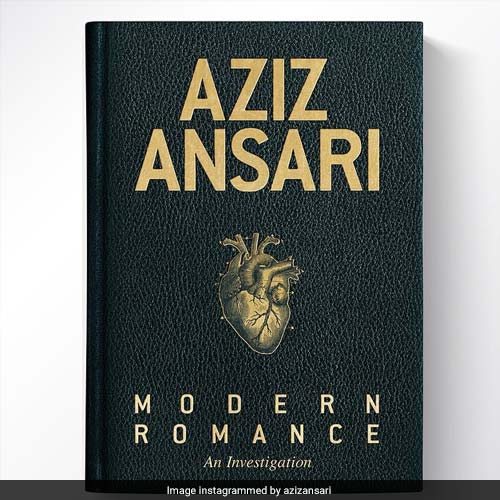
Popular comic, actor and writer Aziz Ansari is the latest addition to a seemingly ever-growing list of Hollywood men accused of sexually harassing women. A 23-year-old New York-based photographer recently came forward with her account of a date that allegedly devolved into a forced sexual encounter with the Master Of None actor, after they met at an Emmy Awards after-party last year.
Sharing graphic details on the website Babe, the woman described how Aziz had made her feel violated by allegedly constantly pressuring her to perform oral sex, while ignoring her reluctance - which she clearly articulated, in addition to all the non-verbal cues. The link is now unavailable.
"It was 30 minutes of me getting up and moving and him following and sticking his fingers down my throat... It was really repetitive. It felt like a f*****g game. I said I don't want to feel forced because then I'll hate you, and I'd rather not hate you... I know I was physically giving off cues that I wasn't interested. I don't think that was noticed at all, or if it was, it was ignored... It really hit me that I was violated . . . I felt really emotional all at once when we sat down there. That that whole experience was actually horrible."
The woman also claimed that she cried all the way home and, later, confronted Aziz Ansari about his alleged misbehaviour when he texted her saying meeting her had been "fun".
"Last night might've been fun for you, but it wasn't for me. When we got back to your place, you ignored clear non-verbal cues; you kept going with advances. You had to have noticed I was uncomfortable."
In a screenshot of the conversation, Aziz seems to have apologised to the woman saying he had "misread things in the moment" and that he was "truly sorry".

In his statement released to the media after the accusation became public, Aziz said:
"In September of last year, I met a woman at a party. We exchanged numbers. We texted back and forth and eventually went on a date. We went out to dinner, and afterwards we ended up engaging in sexual activity, which by all indications was completely consensual.
"The next day, I got a text from her saying that although 'it may have seemed okay,' upon further reflection, she felt uncomfortable. It was true that everything did seem okay to me, so when I heard that it was not the case for her, I was surprised and concerned. I took her words to heart and responded privately after taking the time to process what she had said.
"I continue to support the movement that is happening in our culture. It is necessary and long overdue."

I can imagine that a whole lot of people will chalk it down to a case of "misreading the signs". Aziz Ansari has, after all, been a vociferous advocate of women's rights. No one was surprised when he showed up at the Golden Globes sporting the Time's Up pin on his jacket. After all, his comedy and writing almost entirely revolve around examining and unpacking modern relationships and sex. Master Of None is so well-liked and successful because Aziz and his team of writers so unerringly seem to hone in on the sub-texts of relationships, the truths about feelings everyone feels, and thoughts everyone thinks, but no one is willing to really admit to. It's tough to stomach that someone so likeable, relatable, seemingly decent and self-aware, and just generally nice can wilfully perpetrate sexual exploitation.
Accusations like the ones against Aziz Ansari rattle us, because of the dawning realisation that no one really is exempt or above using their power in ways that dehumanises people (often women) around them.
Which is exactly why our reactions to these accusations take on an additional responsibility - they show us what we still do, or don't, understand about sexual consent.
It's easy to brush incidents like these under the ever-expanding carpet of misreading signs. We've all been taught, for years and decades, that sex is something that women 'give' grudgingly and men have to 'ask for', with persistence if necessary. When we don't think of sexual encounters as an equal interaction, we're obviously going to be inclined to think of persuasion as acceptable; think of some degree of coercion as par for the course, setting the stage perfectly for allowing some forms of sexual abuse to be viewed with a benevolent eye.
Exactly how does someone misread terrified paralysis as anything but reluctance to engage in any further sexual activity? When someone is squirming when you touch them or is rushing about the room to avoid being cornered on a horizontal surface by you, how does a person take that to be anything but refusal?
Now add the context of this trapped woman (or man) having to make a decision, in that moment of panic, about the immediate repercussions of saying no to a person (often) with superior strength, who is already violating consent, and this wilful "misreading of signs" takes on a heinous quality.

I can't begin to tell you how easy it is to not sexually harass or abuse people. But somehow so many intelligent, erudite men seem to be grappling with this most basic understanding of body language. Is sexual consent really as difficult to understand as they want us to believe? Or is the real problem that it's easier to simply not understand?
The other problem with accepting the rhetoric of 'misread signs' in cases like Aziz Ansari's is our unwillingness to see anything other than penetrative rape as a violation worthy of punishment. It is the reason why zealous men's rights' activists are whingeing and whining about men being fired for harassing women on the job. While it's true that rape is an unparalleled crime, any kind of unsolicited sexual contact can be a severely traumatising violation, leaving the victim terrorised, particularly when the transgressor enjoys social or professional power over them.
And finally, Aziz's response to the incident is an almost textbook example of what an overwhelming number of us get wrong about consent - that it is static. Consent is not a dessert at the end of a meal that, once given, is the takers for the keeping, to be devoured at will. Consent means nothing if the person giving it doesn't retain the power to take it back if they so choose. Consent is not static or stationary - it is a choice two (or more) people constantly make throughout the sexual interaction, for every act within the interaction.
How hard can this be to understand, really?
Track Latest News Live on NDTV.com and get news updates from India and around the world
